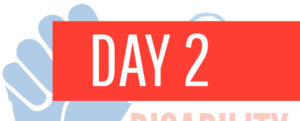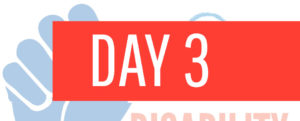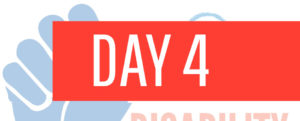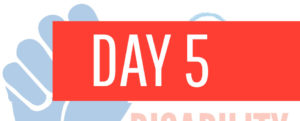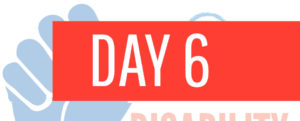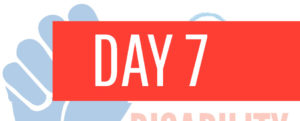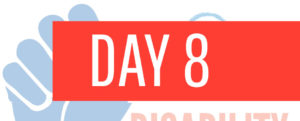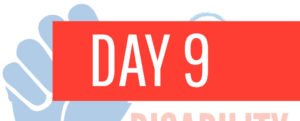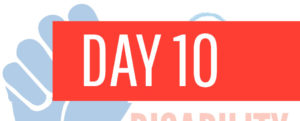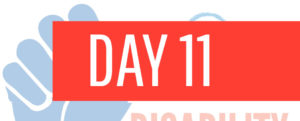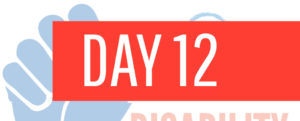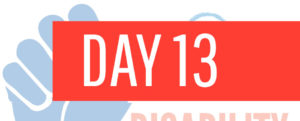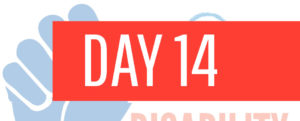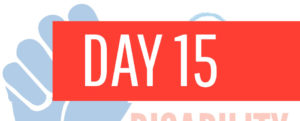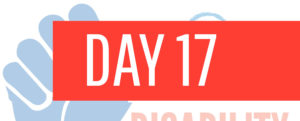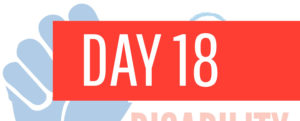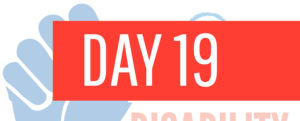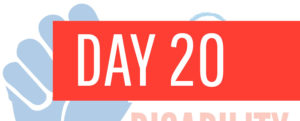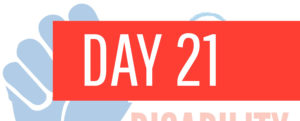Day 16: Law Enforcement & the Justice System
In the 1970s, the Independent Living Movement worked to get people with disabilities out of institutions and living in their communities. In the 1990s, a criminal reform law was passed that ultimately forced many people with disabilities back into institutions, this time jails and prisons, through the criminal justice system.
Despite being no more likely to commit crimes, disabled people are more likely than non-disabled people to be charged with and convicted of crimes. People with psychiatric disabilities are especially at risk of incarceration. Shockingly, the three largest providers of mental health services in the country are all jails!
People with disabilities are more likely to be subjected to police brutality; it is estimated that one-half of people killed by U.S. law enforcement each year have a disability. Disabled people who are also LGBTQ+ or people of color are particularly at risk for police violence and incarceration.
On the flip side of the coin, people with disabilities are also more likely than non-disabled people to be victims of crime because abusers identify them as vulnerable targets for exploitation, yet law enforcement and the courts often don’t take the testimony of disabled survivors seriously. People with intellectual disabilities are 7 times more likely to be sexually assaulted than people without disabilities.

Read
- Understanding the Policing of Black, Disabled Bodies https://www.americanprogress.org/issues/disability/news/2021/02/10/495668/understanding-policing-black-disabled-bodies/
- Most Inmates with Mental Illness Still Wait for Decent Care https://www.npr.org/sections/health-shots/2019/02/03/690872394/most-inmates-with-mental-illness-still-wait-for-decent-care

Watch
Police brutality affects those with disabilities (with transcript) (4:26)
https://youtu.be/9I-66MY3LGE

Listen
- ‘Insane:’ America’s 3 Largest Psychiatric Facilities Are Jails (8:15)
- https://www.npr.org/sections/health-shots/2018/04/25/605666107/insane-americas-3-largest-psychiatric-facilities-are-jails
(transcript here: https://www.npr.org/transcripts/605666107) - In Their Own Words: People with Intellectual Disabilities Talk about Rape (7:49) https://www.npr.org/2018/01/20/577064075/in-their-own-words-people-with-intellectual-disabilities-talk-about-rape
Discussion
- List three changes that could be made in our criminal justice system to reduce the amount of police brutality people with disabilities experience.
- How did you feel when you learned that the de-institutionalization resulted in higher incarceration of people with disabilities?
- Were you surprised to learn that the three largest mental health facilities are jails? Why or why not?


